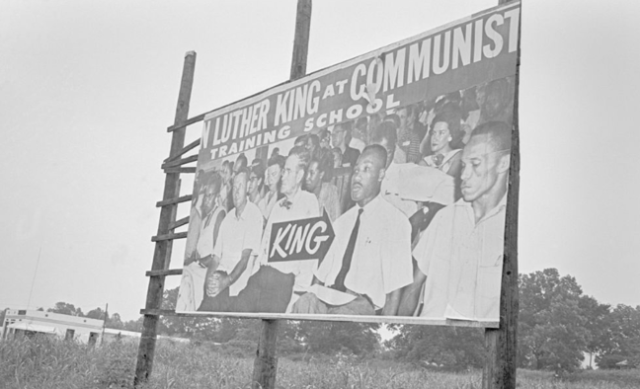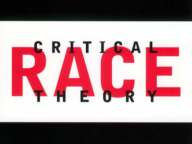[Editor’s Note: As issues and topics around race, inequality, and racism continue to surface in our society and communities, the concept of “critical race theory” has entered the conversation. Some Christians wholly embrace the concept, others reject it as “unbiblical,” and many others fall somewhere in between. We want to present two articles about CRT to help you process and discern what it is, and how it relates to the gospel of Jesus Christ.
Read the second article in this mini-series here called, “Critical [G]race Theory: The Promise and Perils of CRT”.
Written by Dr. Kelly Hamren.
Dr. Kelly Hamren is an assistant professor of English at Liberty University. She received her undergraduate and graduate degrees from Liberty University and her doctorate from the Indiana University of Pennsylvania. Most of her research has emphasized placing literature in historical contexts and includes a primary focus on Russian poets and novelists. She currently lives in Roanoke, VA with her husband and half a dozen cats and spends her free time cooking, studying languages, and training for her second marathon.]
Anyone exploring the conversations about racial and ethnic tension in North America these days will almost inevitably run across the term critical race theory (CRT). A person exploring these conversations within evangelical communities, whether online or otherwise, is just as likely to come across one of two responses: 1) a wholesale rejection of CRT as not only unbiblical but dangerous, largely due to its foundations in critical (read: Marxist) theory; 2) an embracing of CRT as a helpful corrective to a woeful neglect, within the church, to respond to or even acknowledge systemic injustice.
Before responding to either of these threads in the ongoing discourse, I would like to define CRT in more detail.
What is CRT?
CRT developed in the late twentieth century as a way of processing race-based oppression, principally in the United States. It developed first among legal scholars investigating the failure of certain court cases—such as Brown vs. Board of Education—to deliver on their promise of greater racial equality in the US (Delgado and Stefancic, 4-5). CRT theorists sought to understand the interplay of cultural forces which thwarted attempts to rectify racial injustice.
While acknowledging that CRT is a diverse movement, Richard Delgado and Jean Stefancic have helpfully isolated five key emphases of CRT:
- Racism is not the exception to the rule in American society—racism is the rule.
- The oppressive majority will typically make concessions to the oppressed minority only when they themselves benefit.
- Race is the product of “social construction.”
- People can participate in multiple categories of oppression (a phenomenon known as intersectionality).
- People of colour usually have more insight about racial oppression than white people do (7-11).
Each of the above points is complex and deserves detailed study in its own right. I will respond to a few of them in due course, but I would encourage readers to explore them further using the list of recommended sources at the end of this article. In the meantime, I will attempt to answer questions regarding the theory as a whole.
So, is CRT Marxist?
The short answer is yes—CRT theorists drew heavily from Marxist assumptions in formulating their arguments, including the following:
- Inequalities built into the structures of society are the fundamental cause of oppression and suffering in the world.
- The solution to suffering is, therefore, for revolutionary forces to recreate the world according to alternate structures which will eliminate oppression.
One key difference between CRT and classical Marxism is that the concept of a “revolutionary force” is often redefined as a cultural movement rather than a political party. The “revolution” often takes place within the world of ideas and is generally achieved with words, not with guns. However, it is undeniable that Marxism provided the foundation on which CRT has developed.

How are Christians responding to CRT and why?
It is at this point that responses within the evangelical world tend to diverge into the extremes of wholesale rejection of or enthusiastic interest in CRT. I can sympathize with both camps, as I believe both are motivated by legitimate concerns.
Those who reject CRT and attempt to persuade others to do the same are generally motivated by a recognition that Marxism is a false and dangerous worldview and that, as an offshoot of Marxism, CRT offers false promises that can lead even believers astray. They are not wrong to be concerned about these things—as I will explain, Marxism as a framework is indeed false and dangerous, and CRT includes some of the same weaknesses as classical Marxism.
On the other hand, those who are drawn to CRT are often motivated by a biblically-informed righteous anger—as Pastor Robert Cunningham says in his podcast, “Every Square Inch,” a “zeal to hate what God hates and love what God loves” (7:16-20)—and a justifiable frustration with the church for failing to respond consistently or substantially to racial oppression. The lack of a well-developed theology of race within the evangelical world is a valid cause for concern, so it is understandable for believers to pay attention to and learn from conversations about race, even those taking place in the secular world.
There are dangers, however, in both of these responses.
For skeptics:
The zeal to protect the integrity of the biblical worldview is valid and important, but we are not called only to be as “innocent as doves” but also to be as “wise as serpents” (Matt. 10:16). Exercising discernment includes distinguishing truth from error, and in a fallen world, most ideologies will mix the two. We cannot afford to reject an important truth because those proclaiming it proclaim other things that are not true.
Furthermore, overreacting to the unbiblical aspects of CRT (that is, throwing out valid points of critical race theorists along with the invalid points) means that we may fail to address real injustices that we are biblically obligated to address (Micah 6:8). If CRT sometimes proffers a wrong solution to a real problem, the proper response is not to ignore the problem but to offer a better solution—one rooted in the dignity of all human beings as image-bearers of God.[1]
For enthusiasts:
The sense of justice is valid and important; standing up for the oppressed is a biblical idea, and it is true that the evangelical church has been woefully negligent in combating systemic injustice; however, the solution to the lack of a sound theology of systemic justice is to develop a sound theology of systemic justice, not to holistically embrace a framework that is inconsistent with the gospel.
Under-reacting to the unbiblical aspects of CRT carries the risk of being merely absorbed into an imperfect movement rather than providing course correction when that movement finds itself hitting walls or wandering astray—and without the gospel, it will indeed wander astray, at least in some ways. After all, the Marxist framework adopted by critical theory has historically led to more oppression, not less. Our salt will lose its saltiness if we are not careful to maintain a definition of justice that is consistent with biblical ends and means. As Pastor Cunningham puts it, in our zeal to “follow Jesus” in his mandate to intervene on behalf of the oppressed, “let’s make sure that it’s actually Jesus that we are following” (7:56-8:00).
If we are going to avoid these dangers, on both sides, we need to recognize both the strengths and the weaknesses of CRT, from a biblical point of view.
Problems with CRT
As a system, CRT possesses many of the same failings as classical Marxism, including the following:
- Utopianism: a belief that we can and should create a perfectly harmonious world through restructuring social forces and frameworks. If we accept the biblical doctrine of original sin (Gen. 3; Rom. 1-3), we can recognize that such a prospect is unrealistic. What is less immediately clear is that it is also dangerous. Because Marxist dogma promises a virtual paradise on earth if we can just clear obstacles out of the way, it is possible to justify anything in order to do so. The problem is that those “obstacles” often include human beings, which leads us to the second problem.
- Essentializing while claiming to do the opposite: CRT absolutizes categories in a way that fails to do justice to the complexities of individual identities. As Mikhail Bakhtin argued, all people possess “something that does not submit to an externalizing secondhand definition” (58, emphasis in original). Intersectionality represents an attempt to accomplish “anti-essentialism” (Delgado and Stefancic 10), but its multiplication of identity categories does nothing to problematize the categories of “oppressor” and “oppressed,” which can become absolutized in a way that eliminates the possibility of alternate, more nuanced interactions and relationships among ethnic groups. Such absolutizing not only fails to do justice to individual identities and relationships but also perpetuates fear, hostility, and distrust.
- A failure to anticipate the abuse of power by revolutionary forces: classical Marxism envisioned the rise of the proletariat creating a classless society in which oppression could no longer take root. If such a revolution had taken place (the revolutions in the Soviet Union and elsewhere were generally led by radicalized academics rather than factory workers), the proletariat—as human beings—would have had absolute power, and historically (as well as theologically), absolute power tends to bring out the worst in human beings corrupted by sin. By locating the ultimate source of the problem (oppression) within social structures rather than human souls, Marxist frameworks fail to anticipate the capacity of human beings to do evil things no matter what social structures they inhabit. CRT may be fighting the culture wars rather than actual wars, but whoever wins the culture wars is likely to abuse cultural capital as readily as conquering armies abuse the conquered.
- Marxist frameworks appeal to proponents by offering a secular substitute for religion. Pastor Robert Cunningham explains the way this works in his first installment to the “Racism in America” podcast series, noting that “oppression was Marx’s replacement to original sin, liberation was Marx’s replacement to salvation from sin, and a utopian society without inequality was Marx’s replacement to heaven without sin” (11:46-12:02). Anytime people look to a source other than Christ for ultimate salvation, they are chasing after the wind.
All of the above are significant ways in which CRT diverges from a biblical framework of racial justice, but they are easy to miss without an understanding of Marxism. They do not, however, mean that believers can learn nothing from CRT, nor that they can legitimately ignore its contribution to the conversations on race in the Western hemisphere right now.
Valid Insights in CRT
A word of caution to those who are suspicious of CRT as a whole: one of the first things to get past in order to engage meaningfully in racial justice conversations is the fear of terminology. Certain terms, largely because they are often used within Marxism and CRT, tend to set off alarm bells within believers evaluating an article on race. If the article uses terms like “oppression,” “systemic racism,” or “social justice,” they set off the reader’s internal Marxism alarm, and the article is rejected as “leftist propaganda.”
I would advise against the above response by pointing out that some terms and the concepts behind them—including the much-maligned terms “oppression” and “systemic injustice”—do not belong exclusively to Marxism. Millenia before Marx was born, the Bible was addressing issues of oppression by identifying certain groups as more likely to be vulnerable than others (usually widows, orphans, immigrants, and the poor) and putting systemic safeguards in place (e.g., Leviticus 23:22; Deuteronomy 24:19-22). As a result, those terms do not signal that the source is Marxist; instead, we need to pay attention to how the terms are being used.
Similarly, the fact that Marx recognized the existence of systemic oppression also does not constitute a valid reason for denying its existence. Marx probably also believed that the sky is blue, and so do I—that doesn’t make me a Marxist. It is easy to reject an argument based on its association with Marxism—it is harder but more responsible to decide whether the author of the article (Marxist or not) is making valid points. Individual insights can be legitimate, even if the system in which they are voiced is not.
With the above in mind, I would like to point skeptics to some valid insights within CRT:
- While CRT fails to recognize the root cause of racism (human sin), critical race theorists have done a good job paying attention to the ways in which racism manifests itself in Western societies. Since the 1970s, they have collected a great deal of data on race relations in America specifically—both quantitative data such as statistics and qualitative data such as first-hand accounts by Black Americans of the hardships they have encountered. These hardships are easily recognizable when they are individual—addressing someone using the “n” word or physically attacking a person of colour—but can be disguised when they are systemic—hence, the importance of the data collection by critical race theorists. It is worth providing some examples below about the kinds of systemic injustice studied by CRT:
One prominent example is the long-term effects of redlining, which isolated Black Americans in poorer districts and inner cities and placed nearly insurmountable obstacles in the way of home ownership in those districts. Many of these areas still have underfunded schools and suffer from ongoing poverty. Denial of the GI bill to many Black WWII veterans also made it difficult for many Black Americans to find their footing in society, and common representations of Black people in film, TV shows, etc. fostered the stereotype that they were lazy, loud, or untrustworthy—stereotypes that, notwithstanding affirmative action, make it harder for Black Americans to compete in the job market.
As recently as 2016, a study conducted at Stanford University and the University of Toronto found that “companies are more than twice as likely to call minority applicants for interviews if they submit whitened resumes than candidates who reveal their race” (Gerdeman). Even ostensibly “colour-blind” laws—i.e., laws that do not explicitly mention race—often perpetuate injustices.
Another 2016 study references a notorious drug policy from “the 1980s, when legislators enacted tougher sentencing laws for the possession of crack cocaine, a drug more commonly used by minorities, than for powder cocaine, a drug more commonly used by Whites. Although crack and powdered cocaine have similar pharmacological effects, the penalties for crack cocaine use were—and still are—greater than for powdered cocaine use (Beckett, Nyrop, Pfingst, & Bowen, 2005; Tonry, 1995)” (Mears et al. 80-81).
The above injustices are “systemic” because they are not dependent on the ongoing prejudice of individuals—they are the result of prejudice being built into laws and institutions over time. And while Christians and critical race theorists may disagree about some of the solutions, I think we can agree that a systemic problem must have a systemic solution. This is why individual Christians cannot get “off the hook” by saying “I’m colourblind—I don’t see race” or “I love everybody the same.” I might not have personal prejudice against minorities, but if the modus operandi of the society in which I live makes life harder for them, I cannot afford to deny the reality of the hardships they face.
As a Christian, I will surely diagnose the foundational cause of those hardships differently than a secular critical race theorist does, but that doesn’t mean the hardships are not real or that they are not serious. Because I—as a white Christian—have a biblical obligation to care about and fight against the conditions that perpetuate suffering in my fellow human beings, I have a biblical obligation to pay attention to and do something about the specific ways in which the society in which I live has denigrated the humanity of Black people and other ethnic minorities.
The fact that critical race theorists have often done a better job of documenting these injustices than many Christians have does not give me an excuse to ignore them—instead, it creates a greater urgency for those of us in the church to do a better job at paying attention to these things and processing them within a biblical framework.
- Critical theory in general has developed helpful terminology for describing how structural oppression manifests within a society. For instance, the term “hegemony” helps us understand the ways in which some voices in a society tend to dominate our discourse. As defined by Italian philosopher Antonio Gramsci, “hegemony” refers to the ways in which the views of one group become “diffus[ed]…throughout…society as a whole, thus equating one’s own interests with the interests of society at large” (qtd. in Eagleton 116).
In a layperson’s terms, what is best for the powerful ends up being seen as what is best for everyone. As a result, people can be brainwashed into subverting their own interests (116). While I disagree with Marxist scholars on many levels, they are not wrong that the ways in which human beings process their experiences are strongly influenced by social forces—news and social media, political rhetoric, commercial advertisements, family dynamics, etc. And it makes sense to also believe that those forces can be deceitful. I do not, like Marx, believe that human beings are created from the ground up by those forces, which he called a superstructure and other Marxist scholars refer to as “ideology” (another important term).
However, one does not have to be a Marxist to recognize that, just as we attempt to influence our environment, we are also susceptible to its influence. If we were not, the Bible would not have said that “bad company ruins good morals” (1 Cor. 15:33). Those we surround ourselves with can influence how we think and behave, and the most powerful voices in our culture are likely to have a powerful influence. While it is possible to overcorrect and suggest that the voices being drowned out by the hegemonic discourse in Western culture are valid simply by virtue of being silenced, it is equally problematic to accept that the dominant voices in our culture are right about everything merely because they have the microphone.[2]
- CRT’s emphasis on the “voice of colour” posits that people who experience race-based oppression should be given a platform to share their experiences, often through storytelling. Storytelling as a way of challenging accepted norms and highlighting existing injustices has biblical precedents in the parables of Jesus (e.g., the Good Samaritan, Lazarus and the Rich Man). Therefore, the emphasis on storytelling is another aspect of CRT that I as a Christian can get behind.
Where do we go from here?
It is important to recognize that we’ve only scratched the surface of CRT. There are other valid observations made by critical race theorists, as well as additional problems with CRT as a framework. Both CRT and the issues it attempts to address are complex and worthy of serious study. So how can we continue to grow in our understanding?
First, I would encourage believers to educate themselves about biblical principles regarding race and racism. The Bible challenges ethnic stereotypes (the Good Samaritan), affirms interracial marriage (Moses and Zipporah, Boaz and Ruth), promotes racial diversity in the early church (Gal 3:28), affirms the dignity of all human beings (Gen. 1-2), and repeatedly prohibits Old Testament Israel from discriminating against foreigners, which would have included ethnic minorities (e.g., Lev. 19:34).
Secondly, I would encourage believers to educate themselves about the history of race and racism in North America. I have listed some resources below that would be good starting points.
Thirdly, we must be committed to listening—for white Christians, we have a responsibility to listen to our brothers and sisters of colour, for whom it is often painful and draining enough to share trauma without being dismissed for “playing the race card.”
And lastly, we must look for specific and active ways to address racism on both systemic and individual levels. Avenues for action/activism may differ, depending on an individual’s position in the world.
As someone blessed with an education in literature, critical theory, and Marxist (Soviet) oppression, I am attempting to apply this education to questions of race in America. Because I am a university professor, I am attempting to make a difference primarily through teaching and writing. I would challenge every reader to ask the question, “What difference can I make within my community and/or my field?” And of course, don’t just ask the question of yourself—ask the Lord for guidance too, regarding all these hard and important questions about race.
Endnotes:
- If you don’t believe that systemic racism exists, I would encourage you to listen to a series of podcast episodes on “Racism in America” from Every Square Inch, by Pastor Robert Cunningham in Lexington, KY. In the course of three podcasts, he outlines problems with CRT as a system; the real and undeniable existence of systemic, race-based oppression; and specific ways in which believers can respond, biblically, to that oppression. A more recent episode titled “Follow-Up to ‘Racism in America’ Series” is equally helpful.
- Cf. Pastor Cunningham’s podcast for additional, clear discussion of hegemony from a biblical point of view.
Works Cited
Bakhtin, Mikhail. Problems of Dostoevsky’s Poetics. Theory and History of Literature, edited and translated by Caryl Emerson, vol. 8, 1st edition, U of Minnesota P, 1984.
Cunningham, Robert. “Racism in America, pt. 1.” Every Square Inch Podcast, 2020.
Delgado, Richard, and Jean Stefancic. Critical Race Theory: An Introduction. New York UP, 2017.
Eagleton, Terry. Ideology: An Introduction. Verso, 2007.
Gerdeman, Dina. “Minorities Who ‘Whiten’ Job Resumes Get More Interviews.” Working Knowledge: Business Research for Business Leaders, Harvard Business School, 17 May 2017, hbswk.hbs.edu/item/minorities-who-whiten-job-resumes-get-more-interviews.
Holy Bible. English Standard Version, Bible Gateway, 2017, www.biblegateway.com/passage/?search=Isaiah%201&version=ESV.
Mears, Daniel P., et al. “Offending and Racial and Ethnic Disparities in Criminal Justice: A Conceptual Framework for Guiding Theory and Research and Informing Policy.” Journal of Contemporary Criminal Justice, vol. 32, no. 1, 2016, pp. 78-103. Law Journal Library, heinonline-org.ezproxy.liberty.edu/HOL/Page?public=true&handle=hein.journals/jccj32&div=7&start_page=78&collection=journals&set_as_cursor=2&men_tab=srchresults#.
Additional Resources by Christian Scholars on Race, Racism, and the Church:
Cunningham, Robert. “Racism in America, pts. 2 and 3.” Every Square Inch Podcast, summer 2020.
My best advice is to listen to all three of Pastor Cunningham’s indispensable podcast episodes in order. The first covers the problems with CRT as a system and its hidden dangers from a biblical worldview. The second covers the reality of systemic racism based on a rigorous theological and historical analysis. The third provides a way forward for Christians who want to pursue biblical justice.
Cunningham, Robert. “Follow-Up to ‘Racism in America’ Series.” Every Square Inch Podcast, 5 Feb. 2021.
In this episode, Pastor Cunningham clarifies a few points from his original podcast episodes on racism in the US and addresses the overreaction of many Christians to CRT.
Ellis, Jr., Carl F. “Reflections on Black Lives.” Prophets of Culture: Cultural Analysis from a Theological Perspective, 16 Jul. 2016, drcarlellisjr.blogspot.com/2016/07/reflections-on-black-lives.html.
Dr. Ellis, Jr.’s reflections explore the difference between the phrase “black lives matter” and the organization Black Lives Matter. They provide a helpful starting point if you are interested in untangling what has become a grassroots movement with certain agendas radiating out from its starting point.
McCaulley, Dr. Esau. “What the Bible Has to Say about Black Anger: The Psalms Are Not Silent about the Rage of the Oppressed.” New York Times, 14 Jun. 2020, www.nytimes.com/2020/06/14/opinion/george-floyd-psalms-bible.html.
If you want to understand why Black Americans are angry and need to express their anger, start here. It is important to recognize that collective trauma is real and painful for our brothers and sisters of colour.
Taylor, Justin and Dr. George Yancey. “A Christian Approach to Moving beyond Racial Gridlock: An Alternative to Secular ‘Black Lives Matter’ and ‘All Lives Matter’ Ideologies.” The Gospel Coalition, 18 Jun. 2020, www.thegospelcoalition.org/blogs/justin-taylor/a-christian-approach-to-moving-beyond-racial-gridlock-an-alternative-to-secular-black-lives-matter-and-all-lives-matter-ideologies/.
This is a balanced consideration of the problems with the CRT-informed ideology of Black Lives Matter and the culturally short-sighted ideology of All Lives Matter. The alternative he proposes is rooted in the desire to build bridges rather than walls across the spectrum of racial politics.
Tisby, Jemar. The Color of Compromise: The Truth about the American Church’s Complicity in Racism. Zondervan, 2019.
This book contains excellent scholarship on the history of the church’s intersection with race-based oppression and racial politics in the United States. The author’s political positions toward the end are controversial but helpful at least in their honesty.
"*" indicates required fields
Share this!
About the Author





